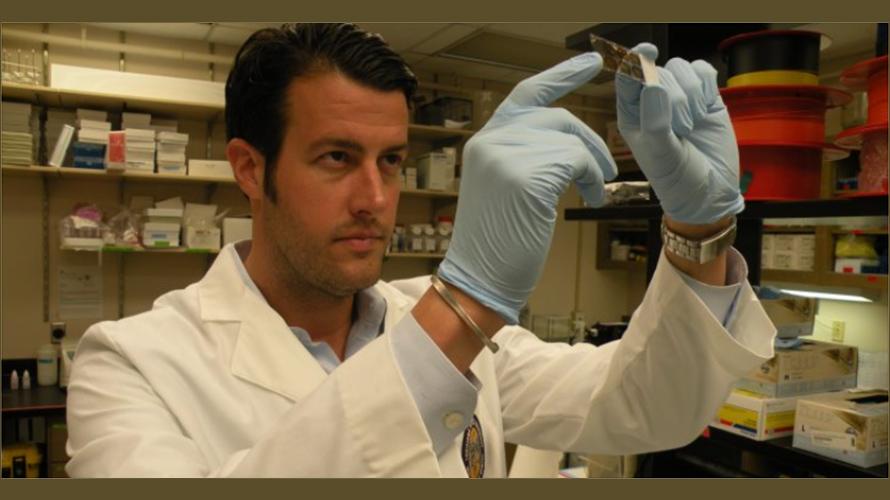VA research targets brain receptor that processes pain in PTSD, alcohol abuse patients
By Ability Central
29 September, 2022

Published on July 5th, 2017 on the VAntage Blog.
Within the next decade, it may be possible for a Veteran to use a simple nasal spray to reduce pain if an ambitious research study at the Southeast Louisiana Veterans Health Care System completes early stage laboratory investigation and moves to human clinical trials.
Dr. Nicholas Gilpin, who recently was awarded a research grant from VA, is working to identify the neurobiological mechanisms in underlying heightened pain states in the context of alcohol dependence and stress disorders.
Veterans are more frequently diagnosed with post-traumatic stress disorder (PTSD) and alcohol use disorder than the general population. Furthermore, those with PTSD often self-medicate with alcohol in amounts that worsen their health – leading to a huge health and financial burden.
Gilpin and his staff are working to develop therapeutic strategies that reduce pain in Veterans living with PTSD and/or alcohol use disorder.
Gilpin’s grant will support work to examine the contribution of brain melanocortin-4 (MC4) receptor signaling to pain processing in those living with alcohol dependence or traumatic stress disorders.
“Our first major data set demonstrates that MC4 receptors modulate heightened pain processing in those living with alcohol dependence, and that we can use this receptor as a therapeutic target,” he said. “Next, our plan is to drill deeper to understand how and where this receptor interrupts brain circuits. That will be a major step toward understanding how MC4 receptors may potentially be targeted to improve Veterans’ lives.”
Gilpin completed his undergraduate training in psychology at the University of Texas, and his Ph.D. in psychobiology at Indiana University-Purdue University in Indianapolis. He went on to complete a post-doctoral fellowship in the labs of Drs. George Koob and Marisa Roberto at The Scripps Research Institute in La Jolla, California, where he used behavioral pharmacology and electrophysiology techniques to explore neural and behavioral dysregulation associated with alcohol dependence.
“I became interested in this type of research because I’ve lived around many addicts, but the stress and pain angles are newer components of my research program,” he said. “During my post-doctoral studies, I learned from a colleague that a cancer chemotherapy drug called Gleevec could be used to maintain the pain-relieving effect of low-dose opiates, and I started to wonder if other brain systems could be manipulated to alter pain processing in similar ways. A literature search revealed that the MC4 receptor is a promising target for reducing pain in individuals with chronic alcohol and drug histories, and that we might be able to leverage this target to reduce the need for Veterans to self-medicate with alcohol and drugs. That is what’s new about this research.”
The Merit Review research grant is one of VA’s Office of Research and Development programs, which for the past 90 years has supported the groundbreaking achievements of VA investigators that are improving the lives of Veterans through health care discovery and innovation. Gilpin’s project was one of 111 selected (out of 466 reviewed) for funding last year.
“My hope is that our lab can provide evidence for MC4 receptor signaling as a viable target to reduce pain in Veterans living with PTSD and/or addiction, and that this work will lead to clinical trials, and can eventually be used to improve the lives of Veterans living with these debilitating conditions,” he said.
Earlier this year, Gilpin was awarded the Presidential Early Career Awards for Scientists and Engineers, the highest honor presented by the United States government upon science and engineering professionals in the early stages of their independent research careers. Gilpin is the only Louisiana recipient of the award.
About the author: Jeff Nowakowski is a public affairs specialist at the Southeast Louisiana Veterans Health Care System.
Capture Date: September 1, 2021